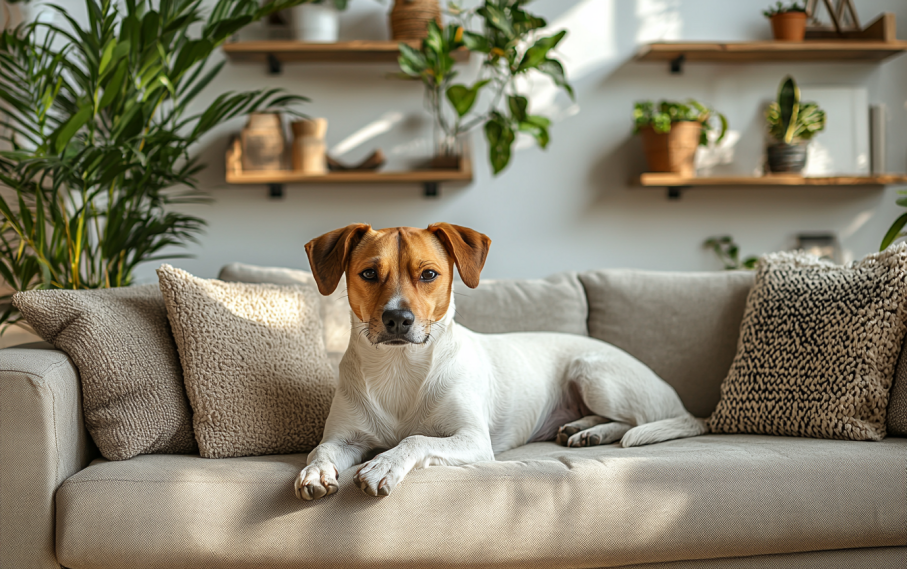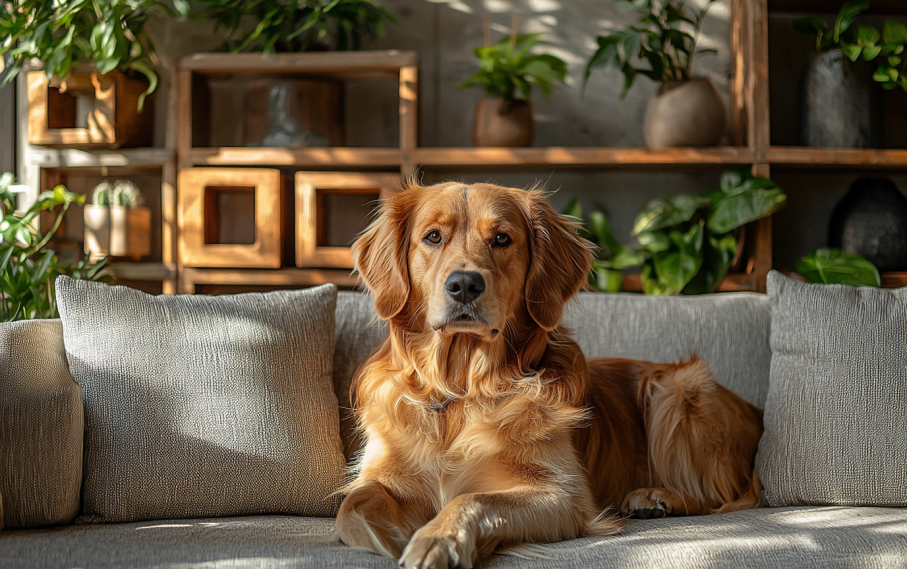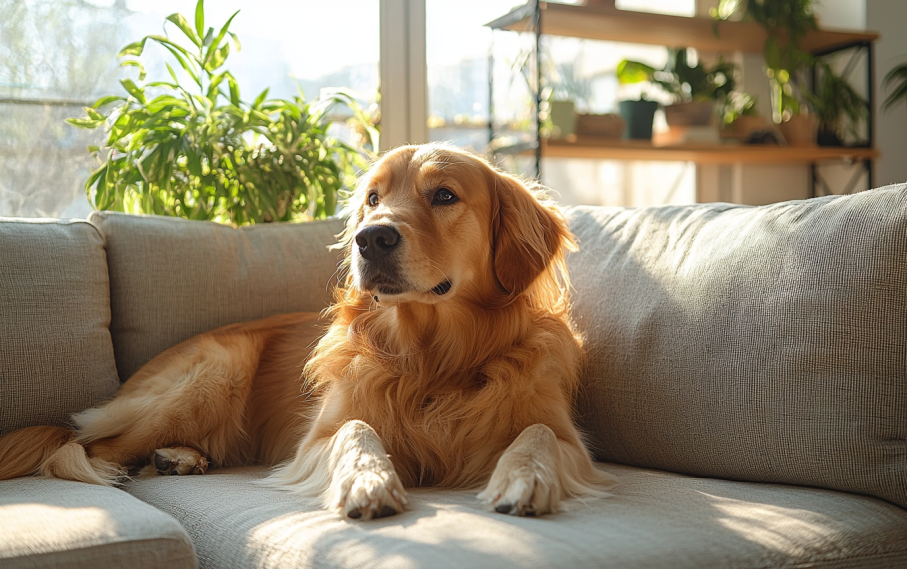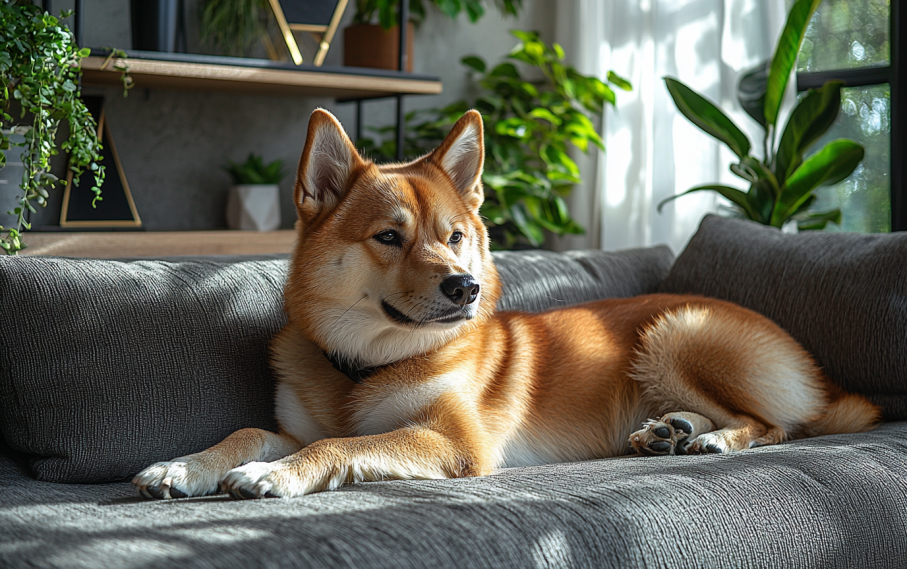Keeping Your Dog Healthy
Dogs bring so much joy, love, and companionship into our lives, so it’s only natural that we want to keep them as healthy as possible. A dog’s health is not just about physical well-being; it also includes mental stimulation, emotional support, and regular preventive care. Whether you’re a new dog owner or a seasoned pet parent, understanding how to care for your dog’s health holistically will ensure they thrive in every aspect of their life.
In this guide, we’ll explore how to provide your dog with balanced nutrition, the importance of daily exercise, tips for mental stimulation, grooming routines, and much more. Let’s dive into each of these areas and discuss how you can keep your dog healthy from head to tail.
Balanced Nutrition for Your Dog
Choosing the Right Food
A healthy diet is the foundation of your dog’s well-being. The food you choose directly impacts your dog’s energy levels, coat condition, weight, and overall health. But with so many options on the market, how do you decide what’s best for your furry friend?
The key is to pick a dog food that is high in quality and meets the nutritional needs of your dog’s age, breed, and activity level. Look for products labeled as “complete and balanced” by organizations like the Association of American Feed Control Officials (AAFCO). These foods contain the necessary vitamins, minerals, and nutrients your dog requires for optimal health.
- Puppy food is formulated with extra calories and nutrients for growth.
- Adult dog food supports the maintenance of body functions and should provide moderate protein and fat.
- Senior dog food often contains joint supplements and fewer calories to account for decreased activity.
Understanding Your Dog’s Nutritional Needs
Every dog has unique dietary needs based on factors like age, breed, weight, and health conditions. For instance, large breeds may need food that supports joint health, while smaller breeds could require more calorie-dense options. Puppies need more protein for growth, whereas senior dogs benefit from diets rich in omega-3 fatty acids to support aging joints and cognitive function.
Some key nutrients include:
- Protein for muscle development and repair
- Fats for energy and a shiny coat
- Carbohydrates for energy
- Vitamins and minerals to support various bodily functions
Healthy Treats and Snacks
Treats are a great way to reward your dog, but they should not make up more than 10% of their daily caloric intake. Opt for healthy treats such as lean meats, fruits like apples (without seeds), and vegetables like carrots. Always avoid toxic foods like chocolate, grapes, onions, and anything containing xylitol.
Importance of Exercise

Daily Exercise Recommendations
Exercise plays a vital role in keeping your dog physically fit and mentally sharp. Most dogs require at least 30 minutes to two hours of physical activity each day, depending on their breed, age, and overall health. For example, high-energy breeds like Border Collies need more vigorous activity than low-energy breeds like Bulldogs.
Regular exercise helps maintain a healthy weight, strengthens muscles, supports cardiovascular health, and reduces the risk of developing behavioral issues caused by boredom or excess energy.
Fun Activities to Keep Your Dog Active
Exercise doesn’t have to be a chore! There are countless ways to get your dog moving, and many of them can be fun for both of you:
- Walking or running: Regular walks are the easiest way to meet your dog’s daily exercise needs. Try varying your route to keep things interesting.
- Fetch: A classic game that burns energy quickly, especially if you use a ball launcher.
- Swimming: A low-impact exercise perfect for dogs with joint issues.
- Dog sports: Activities like agility, flyball, or dock diving provide great mental and physical stimulation.
Adjusting Exercise for Senior Dogs
As dogs age, their exercise needs change. Senior dogs may not be able to keep up with the high-intensity activities they enjoyed as younger pups, but it’s still crucial to keep them active to prevent muscle loss and maintain joint mobility. Opt for gentler activities like slow walks, swimming, or low-impact games that encourage movement without putting too much strain on their bodies.
Mental Stimulation and Enrichment
Why Mental Exercise is Important
Mental stimulation is just as important as physical exercise for your dog’s overall well-being. Without enough mental activity, dogs can become bored, anxious, or even destructive. Regular mental exercises help keep their brain sharp, reduce stress, and prevent behavioral problems like excessive barking or chewing.
Best Toys and Games for Mental Stimulation
Interactive toys and games can challenge your dog’s mind and provide hours of entertainment. Here are some ideas:
- Puzzle toys: These toys require your dog to solve a problem to access a treat. They come in different difficulty levels, so you can choose one based on your dog’s skills.
- Treat-dispensing toys: Toys like Kongs keep your dog busy as they figure out how to get the treat inside.
- Training games: Teach your dog new tricks or commands. This not only strengthens your bond but also keeps their mind sharp.
- Hide and seek: Hide treats around the house or yard and encourage your dog to find them.
Routine Vet Visits and Preventive Care
Vaccinations and Checkups
Regular vet checkups are essential to catching any health issues early and maintaining your dog’s vaccinations. Puppies should see the vet more frequently for vaccinations, while adult dogs typically need annual or bi-annual visits. These visits allow your vet to perform routine tests, administer vaccines, and check for early signs of health problems.
Common vaccines include:
- Rabies
- Distemper
- Parvovirus
- Bordetella (kennel cough)
Parasite Prevention and Treatment
Parasites like fleas, ticks, and worms can cause serious health problems for your dog. Year-round parasite prevention is key to avoiding infestations. Speak with your vet about the best flea and tick preventatives, and make sure your dog is regularly dewormed to prevent intestinal parasites.
Grooming and Hygiene

Brushing, Bathing, and Nail Trimming
Proper grooming not only keeps your dog looking great but also plays an essential role in their overall health:
- Brushing: Regular brushing prevents mats and tangles, removes dirt, and distributes natural oils to keep their coat healthy.
- Bathing: Most dogs only need a bath every 4-6 weeks unless they get into something messy. Overbathing can strip the natural oils from their coat, leading to dryness.
- Nail trimming: Overgrown nails can cause discomfort and lead to injuries. Trim your dog’s nails regularly, or take them to a professional groomer.
Dental Care for Your Dog
Dental health is often overlooked, but poor dental hygiene can lead to gum disease, tooth loss, and other health problems. Brush your dog’s teeth several times a week using dog-friendly toothpaste, and provide dental chews or toys designed to reduce plaque buildup.
Common Health Issues and Prevention
Recognizing Early Signs of Health Problems
Dogs can’t tell us when something is wrong, so it’s important to monitor their behavior and appearance for signs of illness. Common symptoms to watch for include:
- Changes in appetite or water intake
- Lethargy or lack of energy
- Vomiting or diarrhea
- Unexplained weight loss or gain
- Excessive scratching, licking, or chewing
How to Prevent Common Dog Health Issues
Preventing health issues before they start is always better than treating them later. Here are some preventive measures you can take:
- Maintain a healthy diet and weight: Obesity is a leading cause of many health problems in dogs, including diabetes and joint issues.
- Regular vet visits: Early detection of any health issues is crucial.
- Provide joint supplements: For breeds prone to hip dysplasia or arthritis, start joint supplements early to protect their joints.
READ ALSO: Dog Diapers: A Guide for Every Breed and Situation
Socialization and Emotional Well-being
Importance of Socialization for Dogs
Proper socialization helps your dog feel comfortable in various situations and prevents behavioral problems like fear or aggression. Puppies should be exposed to different environments, people, and other dogs early in life to develop into well-adjusted adults.
Reducing Stress and Anxiety
Dogs can experience stress and anxiety just like humans. Some common causes include changes in routine, loud noises, and separation from their owners. To help reduce stress:
- Stick to a consistent daily routine.
- Provide a safe, quiet space for your dog to retreat to.
- Use calming aids like pheromone diffusers or calming treats if needed.
Senior Dog Care

Adjusting Diet, Exercise, and Health Routines for Aging Dogs
As your dog enters their senior years, their needs will change. Senior dogs often require lower-calorie diets to prevent weight gain, along with supplements like glucosamine to support joint health. They may also need more frequent vet checkups to catch age-related health issues early.
Gentle exercise like walking and swimming can help maintain mobility, while puzzle toys can keep their minds sharp. Be mindful of any signs of discomfort or cognitive decline, and adjust their routine accordingly.
Conclusion
Keeping your dog healthy is a lifelong commitment, but it’s also one of the most rewarding responsibilities of being a pet owner. By providing balanced nutrition, regular exercise, mental stimulation, preventive care, and plenty of love, you can ensure your dog lives a happy, healthy life for years to come. Always stay attuned to your dog’s changing needs as they age, and never hesitate to seek professional guidance from your veterinarian when needed.





